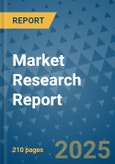Bioactive peptides obtained from food processing residues and discarded raw materials are increasingly being utilized to develop health-promoting products, including nutraceuticals, pharmaceuticals, and functional foods. Growing attention toward sustainability and environmental protection has encouraged industries to adopt waste valorization strategies that align with circular economy goals. Governments across the world are introducing supportive regulations to promote food waste reduction and its conversion into value-added products. The use of eco-friendly extraction methods, such as enzymatic hydrolysis and advanced green technologies, is transforming the production of these peptides by enhancing yield, improving purity, and lowering environmental impact. These innovations are driving demand as they align with clean-label and sustainability preferences among consumers. Bioactive peptides from food waste are gaining traction in functional food applications due to their proven health-promoting properties, such as antioxidant, antimicrobial, and anti-inflammatory activities. Rising consumer awareness around preventive health has motivated manufacturers to develop advanced formulations that cater to the growing demand for natural and effective wellness solutions.
The marine processing waste segment generated USD 454.7 million in 2024. This category, comprising fish, aquaculture, and shellfish residues, is rich in bioactive molecules, making it an essential source for high-purity peptide production. These compounds are increasingly used in industries such as nutraceuticals, cosmetics, and functional foods because of their high nutritional and therapeutic potential.
The healthcare and pharmaceutical segment accounted for a 32.5% share in 2024. This dominance is attributed to the growing use of bioactive peptides in drug development, medical nutrition, and clinical formulations aimed at managing chronic diseases. Increasing demand from aging populations and health-focused consumers has further strengthened the adoption of bioactive compounds with anti-inflammatory, antihypertensive, and antioxidant effects.
North America Bioactive Peptide from Food Waste Market will grow at a CAGR of 11.5% between 2025 and 2034. Market growth is supported by the rising preference for natural, healthy, and sustainable food ingredients. As health-conscious consumers increasingly seek functional foods, supplements, and nutraceutical products, manufacturers in the region are investing in bioactive peptide integration within food and beverage innovations.
Leading companies operating in Bioactive Peptide from Food Waste Market include Arla Foods Ingredients Group, DSM-Firmenich, Fonterra (NZMP), GELITA, Glanbia plc, Kerry Group plc, Novonesis, PB Leiner, Rousselot, and Tessenderlo Group. Companies are focusing on strategic collaborations, sustainable product innovations, and advanced extraction technologies to enhance their market presence. Leading manufacturers are investing in green production methods to improve peptide quality and minimize environmental impact. Many firms are strengthening their R&D capabilities to expand product portfolios catering to health-focused applications. Partnerships with food processors and biotech firms are also enabling efficient utilization of waste materials. Additionally, market players are adopting branding strategies centered on sustainability and clean-label claims to attract eco-conscious consumers.
Comprehensive Market Analysis and Forecast
- Industry trends, key growth drivers, challenges, future opportunities, and regulatory landscape
- Competitive landscape with Porter’s Five Forces and PESTEL analysis
- Market size, segmentation, and regional forecasts
- In-depth company profiles, business strategies, financial insights, and SWOT analysis
This product will be delivered within 2-4 business days.
Table of Contents
Companies Mentioned
The companies profiled in this Bioactive Peptide from Food Waste market report include:- Arla Foods Ingredients Group
- DSM-Firmenich
- Fonterra (NZMP)
- GELITA
- Glanbia plc
- Kerry Group plc
- Novonesis
- PB Leiner
- Rousselot
- Tessenderlo Group








